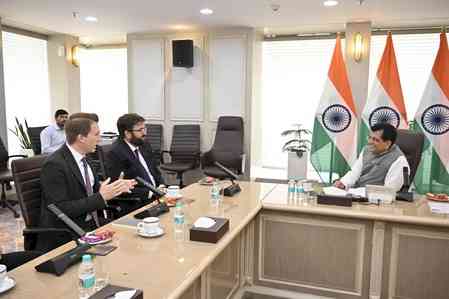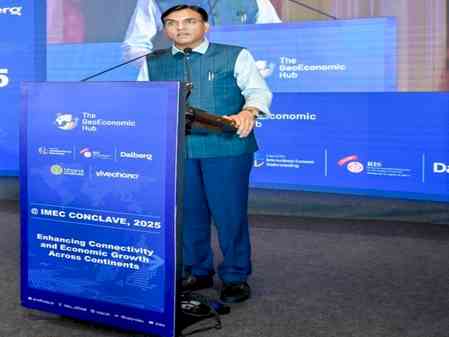Comments on Union Budget 2021-22
The Union Budget was presented by FM today

Vidya Shah, Chairperson & CEO, EdelGive Foundation

"If I could define this fiscal budget in one word it would be ‘Recovery’. The impact of the economic challenged caused by COVID 19 could only be overturned through significant announcements towards social growth, particularly sectors such as education, livelihoods and healthcare.
In perhaps the most relevant announcement given the COVID 19 context, is the support to the unorganised labour force through the proposed portal enabling them with available health, housing, skill, insurance credit and food schemes. Extending these social security and minimum wages to all categories of workers, is a welcome move. Additionally, the announcement and acknowledgment of Women being allowed to work in all categories of labour and also in night shifts with adequate protection, is positive, but will entail a fair evaluation of their safety in these situations.
Further in the agricultural sector, the increase in the allocation under the Rural Infrastructure Development Fund and the Micro-Irrigation corpus is welcomed. However support to Rural enterprises could also have been extended as these enterprises are leading the way to provide opportunities for those in the most marginalised locations.
In regard to Education, the strengthening of over 15,000 schools under NEP as exemplar schools across India, will be useful in understanding the implementation of NEP for other schools to emulate. In terms of higher education, the Higher Education Commission legislation being announced this year will provide more clarity on the sector.
The extensive allocations under healthcare provisions, including vaccination for Covid-19 has been encouraging
However, we would have liked to see more focus on women in this budget. Women enterprises and women farmers need focused attention and support from the government through the different schemes available. Additionally impetus on women’s health, both mental and physical, need much more attention than they are currently getting.
Overall, the budget this year is of increased significance as we continue to aim to rebuild our economy, but its victory will lie in the impact it has on social rebuilding of our nation."
Rahul Raj, Founder & CEO at FloBiz

"I'd like to commend the government on presenting a comprehensive budget that aims to address some of the most important aspects of how we can build a resilient economy, especially in light of the global pandemic. The budget was clearly pro-growth, pro-technology, pro-infrastructure and also had an earmarked place for improving healthcare in our country. The initiatives announced will certainly aid economic recovery, whether that's through capital infusion, change in taxation norms, programs for promoting domestic manufacturing or development of relevant infrastructure - these will create large opportunities for the MSMEs and is a right step in the direction of building an "Aatmanirbhar Bharat"."
Martin Schwenk, Managing Director and CEO, Mercedes-Benz India
“We welcome the policy stability that the budget provides to the industry by no new announcement of direct taxes, though we would have liked some reduction in compensation cess. It’s good to see some positive movement through the scrappage policy and we also expect the capital expenditures to indirectly help the industry. The decision to spend more on infrastructure despite of the high fiscal deficit, will boost the overall economic revival and we should see positive impact on the PV market. However, the increase in the rise in auto component duties is unexpected in such revival period, and it will increase the production cost, leading to higher cost for consumers. There could have been further push towards e-mobility by lowering import duties on EV.”
Sampath Reddy, Chief Investment Officer, Bajaj Allianz Life
“The budget has been a pragmatic and growth oriented one. It has given greater emphasis to support growth recovery by allowing some fiscal slippage. Fiscal deficit for FY21 has been pegged at 9.5% and for FY22 at 6.8%, which has been higher than market estimates.
Focus areas have been on infrastructure and healthcare sectors --with capex budgeted to grow by a healthy 26% in FY22, and total healthcare & wellness outlay increased by a lofty 137% in FY22. The boost for infrastructure should help to revive investment and help support the growth recovery. With buoyancy in capital markets the government has revived its commitment towards PSU divestment drive by announcing a large target of Rs. 1.75 lakh crore via divestment route in FY22, after significantly underachieving the lofty FY21 target on the back of market volatility and economic contraction.
The equity markets have cheered the budget with it being growth oriented, and no major tax changes or levy (expect the introduction of agri & infra cess). However, the bond markets have seen some hardening in yields due to the higher than expected fiscal slippage and government borrowing. The market will soon digest the budget and move on to fundamental factors and global cues. Corporate earnings in Q3 FY21 have been above expectations and is expected to see robust growth of around 30% (for the Nifty index) in FY22. Even though market valuations are elevated, the recovery in corporate earnings and the easy liquidity scenario globally may help to support valuations for some time. Overall, FY22 will be the year of normalization (from the Covid-19 pandemic) and will stage for acceleration in future growth.”
Sumeet Mehta, Cofounder & CEO, LEAD School on education sector
“The year 2020 was a catastrophic one for the education sector with the Covid-19 pandemic forcing schools and education institutions to shut down. I commend the finance minister for giving a boost to the adoption of National Education Policy and strengthening 15,000 schools in the country is a right move in that direction. Tribal students have suffered the most due to the pandemic with no access to quality education and lack of appropriate infrastructure to adopt online learning in a school-from-home environment. The Government’s target of establishing 750 Eklavya model residential schools in tribal areas will enhance the quality of learning and enable them to avail learning opportunities and help in the overall development. I am confident that the Budget will bring a positive change in the lives of SC/ST students as it aims to bridge the learning gaps and make education affordable and accessible for a larger audience.”
Rajiv Sabharwal, MD and CEO, Tata Capital
"FM Sitharaman’s 6 pillared budget is progressive and growth inducing in more ways than one. Push to infrastructure, healthcare and education and extension of tax holidays for startups and affordable housing projects are exactly the reforms that our economy needs for growth.
The increase in FDI in insurance to 74%, provisions for the divestment of PSBs and the famed LIC IPO will accelerate growth in the banking and financial services sector of the country. Also, the institutional framework is a welcome confidence building measure which will deepen the secondary markets.
Budget 2021 will benefit the real estate sector in the form of extension of interest deductions and tax holidays for affordable housing projects. The Vehicle Scrappage policy will be a big boost for the Auto sector
Allocating funds for digital adoption and providing incentives for the same will facilitate digital inclusion and greater transparency in the financial services ecosystem. This is a great motivator for companies to continue innovating.
From a long term perspective, the budget projections have expressed resolve for fiscal consolidation and deficit management. Further, FY 21 and FY 22 deviations are attributed to the unprecedented precipitation of the pandemic. India’s economy will exhibit resilience and emerge stronger in the near future."
Umesh Revankar, MD and CEO, Shriram Transport Finance
“The budget presented in a new digital format by Ms. Nirmala Sitharaman aims to revive the economy from the economic turmoil of COVID -19. We welcome the government’s enhanced outlay of Rs.1,18,101 lakh crores for Ministry of Road Transport and Highways and the decision to launch a voluntary vehicle scrapping policy to phase out old vehicles. This step will be beneficial as it is aimed at reducing vehicular pollution post undergoing a fitness tests after 20 years for PVs and 15 years for CVs. This will encourage vehicle owners to buy younger vehicles up to 10 years old and ultimately lead to more new vehicles sales. We support these government initiatives as these steps are beneficial for both our company and sector.”
Harshil Mathur, CEO & CO-founder, Razorpay
"2020 saw an 80% increase in digital payments, especially from Tier 2 & 3 cities, and the Gov. has understandably focussed on capitalising on this momentum and incentivising the adoption of digital payments for the year ahead. I believe the 1500 Cr. incentive announced will open a plethora of opportunities for Fintechs to innovate for the new normal, leading to large scale adoption even in the smallest of towns and villages. I'm hoping the funds will be used towards developing alternatives to Zero MDR policy and initiatives towards bringing digital financial literacy in vernacular languages. These will instil trust in the system and accelerate adoption from MSMEs and entrepreneurs who are apprehensive towards moving money digitally."
Fintech in India has grown more in the last ten months than in the last two years, thanks to young Startups who’ve built tailored solutions and addressed markets never served before. And so, easing the norms around setting up of One-Person Companies (OPC), without any restrictions on paid-up capital and turnover, is a good step towards removing barriers to innovation amongst startups. Also, the 1-year extension towards capital gains exemption will provide additional tax relief for startups, enabling ease-of-doing-business in this new order and allowing small businesses to prosper.”
Umesh Revankar, MD and CEO, Shriram Transport Finance
“The budget presented in a new digital format by Ms. Nirmala Sitharaman aims to revive the economy from the economic turmoil of COVID -19. We welcome the government’s enhanced outlay of Rs.1,18,101 lakh crores for Ministry of Road Transport and Highways and the decision to launch a voluntary vehicle scrapping policy to phase out old vehicles. This step will be beneficial as it is aimed at reducing vehicular pollution post undergoing a fitness tests after 20 years for PVs and 15 years for CVs. This will encourage vehicle owners to buy younger vehicles up to 10 years old and ultimately lead to more new vehicles sales. We support these government initiatives as these steps are beneficial for both our company and sector.”
Anil Agarwal, Chairman, Vedanta
“I compliment Hon'ble FM Sitharaman on presenting a digital Budget which has addressed every sector of the Indian Economy. The steps taken by the Finance Minister will improve productivity in infrastructure, result in housing for the poor, help produce cheaper electricity, stimulate the growth of MSMEs and start-ups and create massive jobs. There is a big thrust on disinvestment as the government has set a target to raise Rs 1.75 lakh crore through stake sale in public sector companies in FY22. India is the investment destination for the world and this Budget will help in attracting more investors. Truly, an unparalleled budget.”
Yogesh Mudras, Managing Director, Informa Markets in India

“FM Nirmala Sitharaman presented the first-ever paperless budget with a special focus to Healthcare and Infrastructure sector. The announcement for Rs 64,180 crore for the overall Healthcare sector in the Union Budget of 2021 was a vital move by the Government to strengthen the Health and Wellness centres across India and contribute to our National Health Mission. The vision for recovery in the state-wise infrastructure activities supported by robust investments will give the economy the much-needed impetus and help us march towards the $ 5 trillion marks. The collateral-free loans and funds for MSMEs will stimulate growth and render solace to MSMEs hit by the pandemic.”
Vinod Kumar Gupta, Managing Director, Dollar Industries Limited

"The pandemic has affected all sectors globally and the textile industry has been no exception to the same. The focus of the Government in this Budget 2021 is on expenditure wherein 34% is on capital infrastructure which in turn is going to generate employment. Even though the budget is focused on expenditure the fiscal deficit is kept below 10% which will be bought down to 4.5% in 2025. The disinvestment and monetization reforms will help in economical development. Core sectors like Steel, Cement, Infrastructure, Insurance and Banks are big beneficiaries in the Budget. Long term roadmap on infrastructure and visibility on duties & taxes will make life easier for industries at large. The Budget of 2021 enables our indigenous textile industry to become globally competitive. This in turn shall make India a competitive manufacturing and exporting hub for the sector. The announcement of the set-up of 7 National Textile Park is one such step in that direction. There was no reduction/relief on personal taxation side, however, the good part is that we did not see levy of any additional cess. A welcome move by the Government is putting more trust on the taxpayer and reduction in compliance will lead to reignite animal spirit amongst industry and business community. Overall, this is a pragmatic and growth-oriented budget and for the Indian textile industry it is a great step forward towards realising the end goal of 'AtmaNirbhar Bharat."
Rajeev Radhakrishnan - CIO - Fixed Income, SBI Mutual Fund

"The focus of the Budget has been clearly on ensuring a sustainable revival of growth with an enhanced focused on capital expenditure. Towards this objective, the government has budgeted for a higher fiscal deficit target of 6.8%of GDP for the coming financial year. Revenue buoyancy assumption of 1.15 shows a relatively conservative assumption and the divestment target has been pegged at Rs 1.75 trillion. At the same time, the budget has made efforts to shift the NSSF borrowings of FCI into the budget, which fairly reflects the actual fiscal numbers. Some of the other significant takeaways include the policy announcement to privatize 2 PSU banks and the setting up of asset reconstruction company to takeover and manage stressed assets from banks.
Debt sustainability within the Indian context as enunciated in the Economic survey depends predominantly on sustaining a higher growth rate. Towards this , the focus on growth revival through a larger fiscal outlay can't be faulted. However, this definitely complicates the RBI task of managing the government borrowing program. Given the context of the expected normalization of liquidity, an upward shift in the curve is unavoidable. In this context, continuation of market intervention operations would determine the new trading band for sovereign securities.
This is a market friendly budget with respect to equity markets at first glance. The equity markets have run up on valuations and it is kind of imperative that earnings growth catches up. To that extent, the loosening of purse strings as a counter cyclical measure, increase in planned capex and the neutrality on direct taxes are meaningful positives that provide greater confidence on earnings growth mean reverting back to high double digits."
Nishant Arya, Executive Director, JBM Group
"The allocation of Rs 18,000 crores for the public bus transport services has come as a sigh of relief for the bus makers who have been caught in the doldrums from 2019. The proposed PPP model will in turn help the sector to create employment as well and overcome the adverse effect of the pandemic. We, as an industry player, are now looking forward to the details of the vehicle scrappage scheme which will be an added advantage for the auto sector. The heavy and medium commercial vehicle sector will also have a boost in demand as a sum of Rs 5.54 trillion has been allocated for infrastructure development. The 2.5-5 percent reduction in the customs duty on some of the semi-finished and finished steel products will have a positive impact on the automotive industry.
The solar sector is now awaiting notification on phased manufacturing for solar cells and solar panels. The increased custom duty on solar inverters, solar lanterns/lamps from 5% to 20% and 15% respectively will encourage domestic production which is the need of the hour to fulfill the dream of “Aatmanirbhar Bharat”. The government's thrust towards green energy generation has further been consolidated and initiatives such as SATAT aimed towards setting up biogas projects will see speedy deployment."


 cityairnews
cityairnews 







